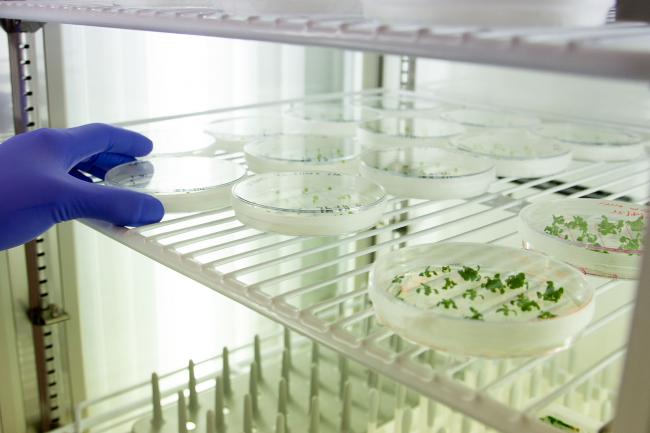
The Genetic Technology (Precision Breeding) Bill has become an Act of Parliament and will bring the UK in line with other countries - including the USA, Canada, Brazil, and Australia - where legislation already exists to codify the use of genetic technologies related to food production.
The creation of the legislation comes in part thanks to lobbying and consultation responses from researchers and public affairs professionals based at the Norwich Research Park, including the Earlham Institute.
With the ambition to help the UK to become a global science superpower by 2030, the Government's new rules put sustainable, climate-friendly farming at the forefront of food production, while driving progress towards net zero and protecting nature.
The Bill makes it quicker and easier for researchers and food producers to develop plants with a range of beneficial traits.
These technologies have the ability to improve nutritional value, reduce pesticide use, and increase tolerance to environmental change - critical in delivering national and international climate change and biodiversity goals.
Professor Neil Hall, Director of the Earlham Institute in Norwich, said: “This important legislation will help to realise the potential of precision breeding technologies, enabling our research to support sustainable crop production with improved nutritional benefit while reducing environmental impact.”
Gene editing is an example of the technologies addressed in the Act which involves making specific and deliberate changes to DNA, without adding in any new sequences or genes.
The process allows researchers to precisely turn off or fine tune specific genes, something that can't be achieved through less targeted processes. As a result, gene editing is faster and more efficient, accelerating the pace at which innovation can benefit consumers.
By empowering UK researchers to use gene-editing technologies, farmers and the food industry will be able to produce higher-quality food crops with fewer inputs, such as pesticides and fertilisers.
“At the Earlham Institute, we use genomic technologies to understand which genes are responsible for important agricultural traits,” explained Professor Hall. “Genome engineering technology will allow us to directly incorporate changes to these genes in agricultural varieties, accelerating improvements in agriculture.”
The Earlham Institute advocated publicly for a change in the regulation of new plant breeding techniques to enable the commercial application of gene editing for agricultural purposes.
The Institute’s work included lobbying parliamentarians and ministers - both collaboratively and unilaterally - as well as contributing expert analysis to the Science and Technology Select Committee and responding to Government consultations, including the National Food Strategy.




